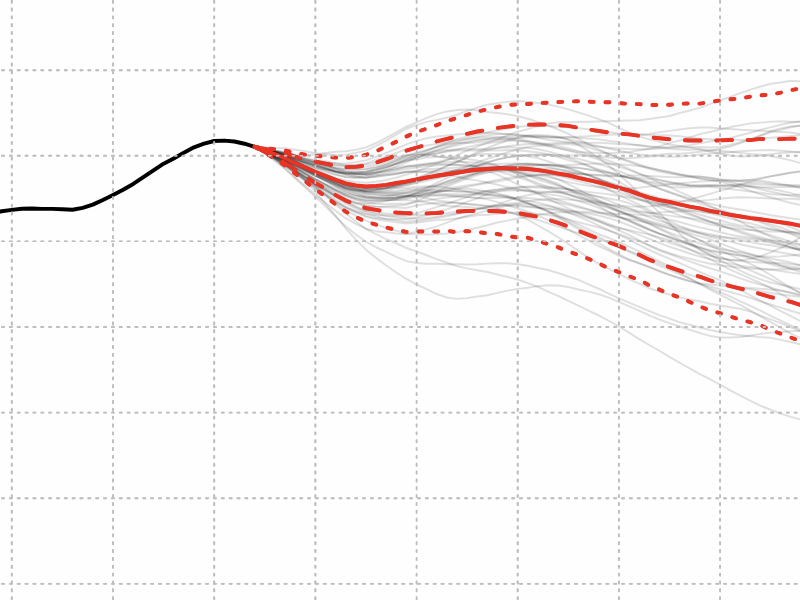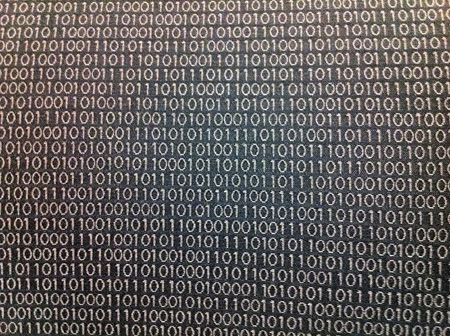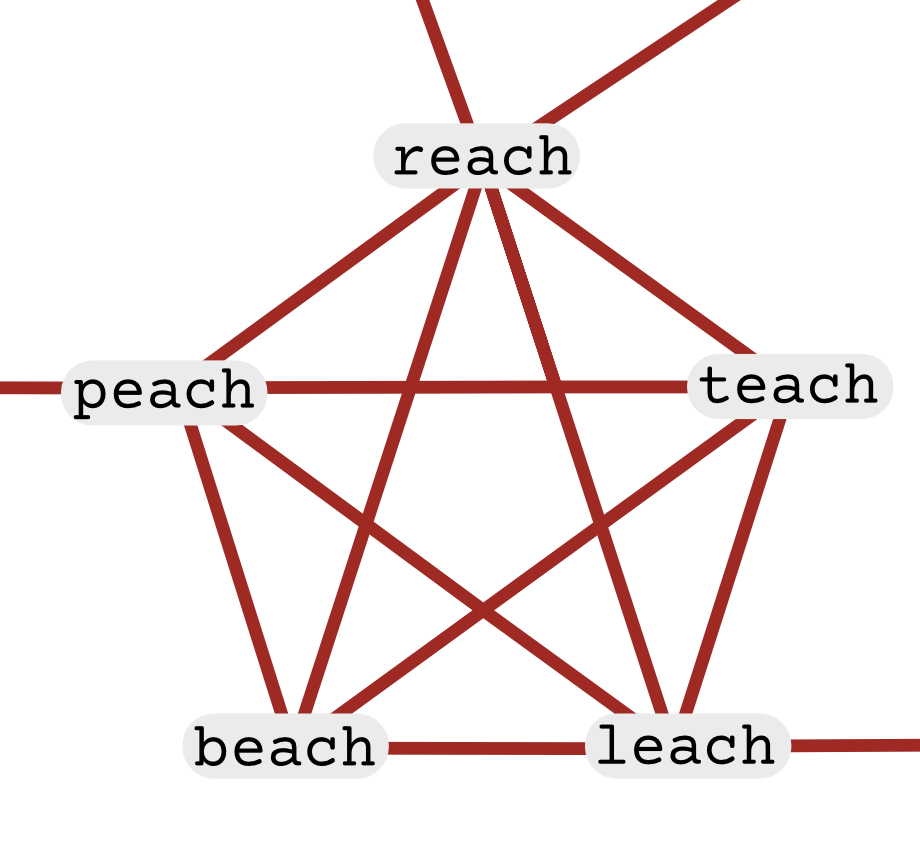Electoral Hex
by Brian Hayes
Published 12 March 2008
Democrats here in the U.S. are having quite a primary season. With high hopes of winning the general election in November, we are deadlocked over which candidate to nominate. Should we just wait to let the delegates slug it out at the convention in August? Should the trailing candidate withdraw in the interest of party unity? Could the two contenders flip a coin to decide who gets to head the ticket and who gets to drink the bucket of warm piss?
I have a proposal. Here’s the geography of the current situation, following Obama’s victory in Mississippi yesterday (map brazenly swiped from the New York Times):

The solution is obvious, no? We follow the rules of the game of hex: The nomination goes to the first candidate to form a continuous chain of states either east to west (Atlantic to Pacific) or north to south (from the Canadian border to Mexico or the Gulf Coast). Thus the three key states are Pennsylvania (which votes April 22), North Carolina (May 6) and Kentucky (May 20). Clinton could create an east-west chain by taking North Carolina, or a north-south path by winning Kentucky. For Obama, Kentucky creates an east-west link; to construct a north-south chain, Obama would have to win both North Carolina and either Kentucky or Pennsylvania.
I get to cast my ballot on May 6 in North Carolina. All I’m saying for now is that I’m not voting for Ralph Nader.
Responses from readers:
Please note: The bit-player website is no longer equipped to accept and publish comments from readers, but the author is still eager to hear from you. Send comments, criticism, compliments, or corrections to brian@bit-player.org.
Publication history
First publication: 12 March 2008
Converted to Eleventy framework: 22 April 2025



I would suggest calling this political version of hex “pox” — as in “A pox on both your parties!”
On your US hex board are we always guaranteed a winner?
> On your US hex board are we always guaranteed a winner?
Now that you mention it, no. Although it can’t happen in the present configuration, it’s easy to construct maps where two or more states hold their primaries simultaneously and both candidates form a cross-country chain at the same time. (The two chains will either both be east-west or both north-south.) In standard hex, that’s not possible because one player strives to connect north with south and the other tries to link east and west. If one succeeds, the other is necessarily blocked.
This is a serious flaw. So I revise my proposal. Instead of treating the state primaries as a gigantic game board, we’ll just let the two candidates sit down together for a cozy game of hex—winner take all.
It wouldn’t be too hard (or would it?) to guarantee a winner by persuading the states to hold primaries on different days. However there’s another problem with your proposal: It effectively disenfranchises the residents of Rhode Island. Because Rhode Island is sealed off by the coastal states of Massachusetts and Connecticut, which also border each other, there is no scenario in which the outcome in Rhode Island can swing the nomination — Rhode Island is never needed to complete either and east-west or a north-south chain.
Right about Rhode Island. And South Carolina is another unfortunate wedge state. Are there any others? I don’t think so. But there is the potential for conflict over the Four Corners intersection: Should, say, Utah and New Mexico be allowed as links in a chain?
Perhaps it’s not electoral practices that need reform but American geography? It’s time to make the country a proper game board.
Come to think of it, Connecticut and Rhode Island are both screwed, because they’re both sealed off by Massachusetts and New York. I think that’s it though (not counting Alaska and Hawaii, of course).
Maine too. Connects only through N.H.
Barry Cipra is (as usual) too gentle … in fact, NY state seals off *six* states: Rhode Island, Massachusetts, Connecticut, Vermont, New Hampshire, and Maine. But what the heck … those states are full of godless liberals anyway.
> I get to cast my ballot on May 6 in North Carolina. All I’m saying for now is that I’m not voting for Ralph Nader.
Why not?